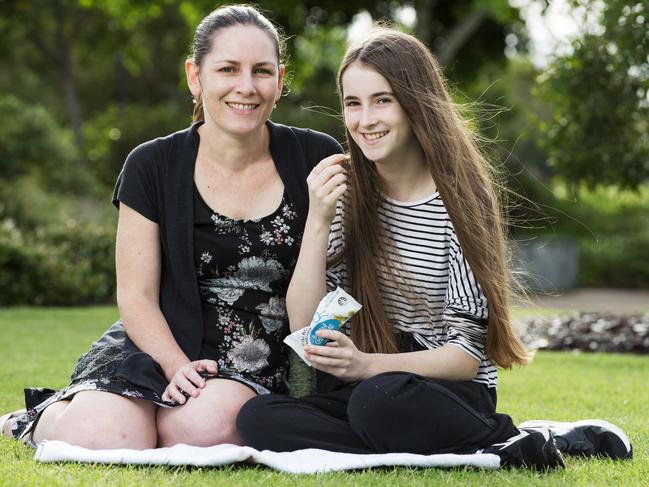Treatment of allergies is in crisis say national experts
Health practitioners are making a critical error in treating children with a potentially fatal complaint — and experts warn the death toll is mounting.

QLD News
Don't miss out on the headlines from QLD News. Followed categories will be added to My News.
HEALTH practitioners are sending children home without proper treatment – not even an epipen – after they have had life-threatening anaphylactic attacks.
As the number of deaths continues to rise, the poor treatment of Australians with food allergies is at crisis point, says the country’s experts, who are calling for a $20 million injection over five years from the Government into the existing National Allergy Strategy.
Medical experts suggest egg and peanuts in babies’ diets to prevent food allergies
Victorian food shops put on notice over allergy risks
Dangerous little-known FPIES allergy on rise among infants and children
Leading children’s allergy specialist Associate Professor Richard Loh said: “We are talking about young people dying and going into emergency departments, in most cases due to anaphylaxis that could have been avoided.”
Allergy deaths have increased by 42 per cent over six years and life-threatening food allergy rates have doubled in 10 years, but Australia has a shortage of allergy specialists and health professionals with allergy expertise.
Victoria is the first state to have a register recording the number of cases of anaphylaxis. There have been almost 1000 cases since the register began in November. The experts are calling for a register in Queensland as part of the national strategy.
Allergy and Anaphylaxis Australia chief executive Maria Said said the National Allergy Strategy used the best available evidence and aligned with the experience of consumers.
“Families living with a child or young adult with food allergy, live life being fearful,” Ms Said said.
“They don’t trust food labels and they don’t trust the health care system to do the right thing, and that’s just food allergy.
“There are many thousands of people who are unsure whether they have a drug allergy, who can either be wrongly denied medication or be given it unknowingly.

“On top of that, patients are put at risk because we do not have standards of care for anaphylaxis in Australia.
“These need to be developed and implemented.
“When children have a severe allergic reaction, many don’t receive the right emergency care and are often sent home without self-injectable adrenaline.
“These people need food to sustain their life but without appropriate care and ongoing management it could be food that actually kills them. It is not a lifestyle choice.”
Extra funding would allow the National Allergy Strategy to include an anaphylaxis register or notification scheme to collect better data on things such as unsafe foods which don’t have accurate ingredient labels, allow for training of health professionals and food service providers so that more people could receive quality care, also better training in the food service industry, better access to emerging treatments for food allergies, immunotherapy for insect sting allergy, and better diagnosis of drug allergies.
Sunshine Coast 15-year-old Bella Gray lives differently from many other teens.
She has a life-threatening food allergy to milk, egg, fish and chicken, and also suffers from eosinophilic oesophagitis, another debilitating rarer type of food allergy.
Her mother Sarah said: “Bella had her first symptoms at age three and the waiting list to see a specialist was one year.
“I couldn’t live in fear so went to a private doctor.
“Over the years it has been apparent that not all health professionals are well trained in allergies.”
Deadly details
* 27 per cent anaphylaxis cases not given adrenaline in EDs
* Less than half of cases given an epipen prescription
* Only third of cases referred to specialist
* One state has had 1000 attacks in five months
* Death rate has increased by 42 per cent in six years
* One in 10 infants has a food allergy
* Hospital admissions risen five-fold for under 4s in 10 years
Originally published as Treatment of allergies is in crisis say national experts


